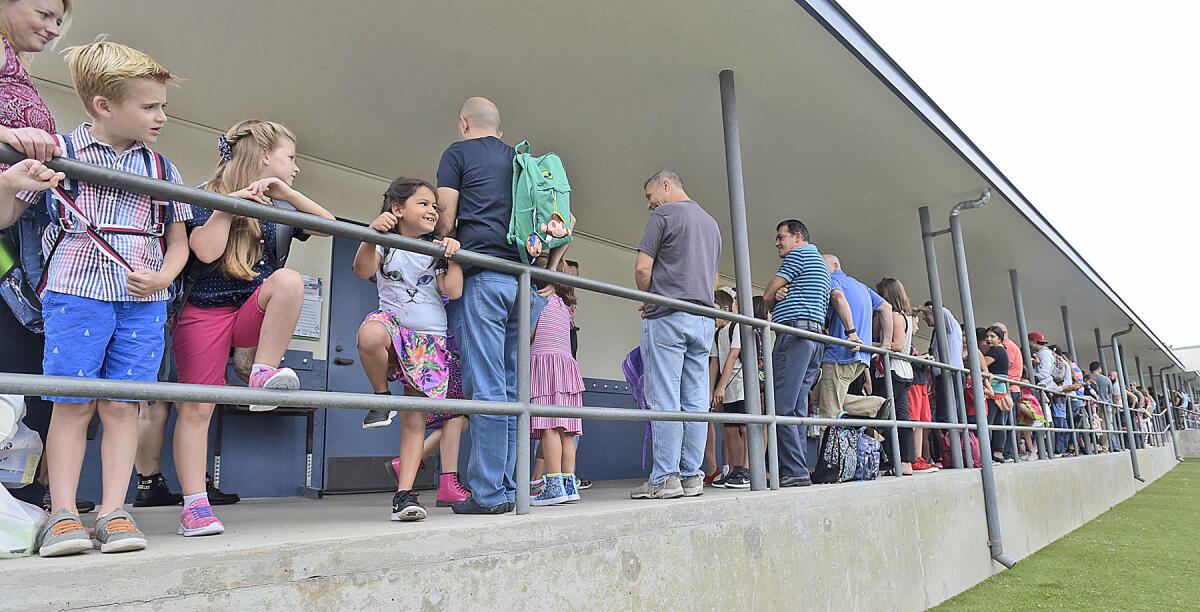Letters to the Editor: A ‘right to literacy’ in schools is meaningless unless children read at home

- Share via
To the editor: As a retired reading specialist, I was pleased by your editorial on the federal lawsuit claiming that it is a constitutional right for all students to be able to read competently. I’d like to make a few points.
You state that changes in the curriculum could be a weapon in the so-called reading wars between phonics and whole-language programs. It is not a case of trying one or the other. Both are necessary given the structure of the English language, in which 85% of the words are phonetically regular. Ignoring the other 15% would be unwise.
The second point is related to the role of the schools in teaching reading, not just the mechanics but the act of reading fluently.
More than 100 years ago Edward Thorndike, an early faculty member at Columbia University’s school of education, claimed that students learn to read mostly at home. Schools can provide basic tools, but without home and community support, reading programs likely will not succeed.
Robert W. Kopfstein, Bonsall, Calif.
..
To the editor: Your editorial supporting the notion of a constitutional “right to literacy” prompts additional questions in the age of COVID-19.
Our Constitution is filled with prohibitions, but very few, if any, affirmative obligations for individuals.
When I was teaching constitutional law I would give the example of the person who collapses on the sidewalk near you, and you are the only observer. Do you have an affirmative obligation to do anything, if only to call 911? Is there a right to be intentionally cruel and do nothing as a fellow citizen dies in front of you?
In today’s crisis we could easily ask the same question in different form. Does a president have a right to order meat packing plants to reopen while at the same time refusing to create the necessary safety rules? Do homeless people have a right to shelter? Do the starving have a right to eat?
What good does it mean to have a “right to literacy” if you can’t feed your family or have a roof over your head?
If there is anything good to come out of this health crisis, it will be a reconsideration of the proper role of government. A fully functioning government safety net may be required by our Constitution. Wouldn’t that be a pleasing antidote to our current leadership vacuum?
Roger Lowenstein, Beverly Hills
More to Read
A cure for the common opinion
Get thought-provoking perspectives with our weekly newsletter.
You may occasionally receive promotional content from the Los Angeles Times.









